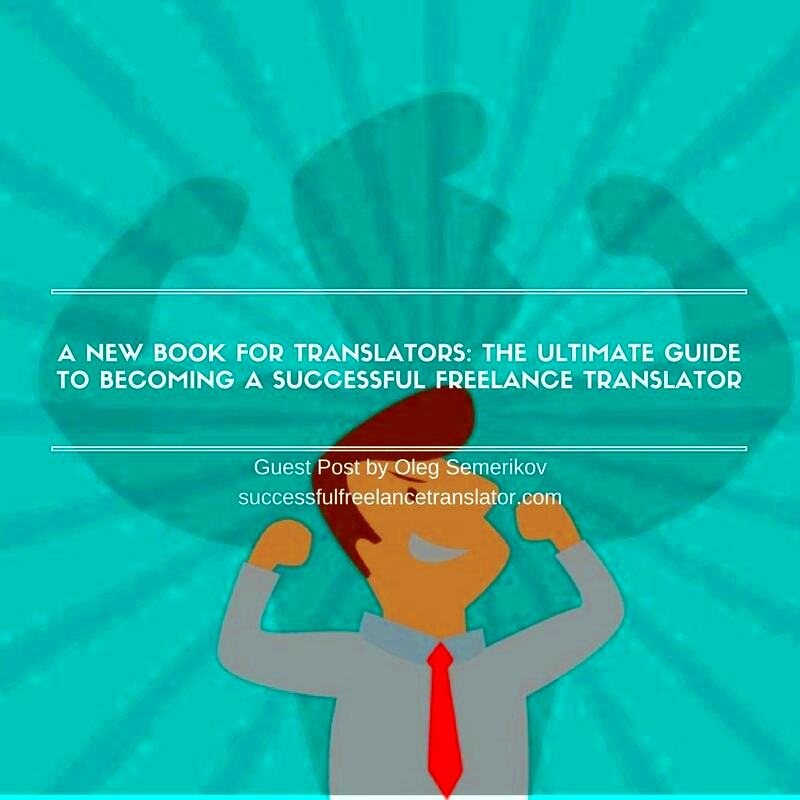Freelance translators serve a crucial purpose in narrowing communication gaps between distinct languages and cultures. Their work involves more than simply changing words from one language to another while translating documents, websites or oral dialogues. In addition to that, they should always ensure that the original message is relayed correctly including its meaning, tone as well as subtle features.
Written text is handled by translators as opposed to spoken words as in the case of interpreters. Working as a freelancer means that you will be handling projects from different clients whose subjects can be entirely different. There is a range of work from legal documents to creative pieces that makes every day interesting and demanding at the same time.
Freelance translation could be characterized by flexibility and independence; however, it also demands commitment as well as continual improvement. To bring in clients for longer periods of time, a solid reputation must first be developed.
How to Start Your Journey as a Freelance Translator

Although getting into freelance translation at first may appear chalked full of difficulties, it becomes possible when you divide the whole thing into stages.
To consider; these are some major steps:
- Choose Your Language Pair: Focus on a specific language pair where you're proficient. Many translators start with their native language and another language they are fluent in.
- Get Certified: While not always required, certifications like ATA (American Translators Association) can add credibility and help you stand out.
- Specialize in a Niche: Do you enjoy legal, medical, or technical translation? Narrowing your focus can help you become an expert in a particular area and attract specialized clients.
- Set Up an Online Presence: Having a professional website or Fiverr profile helps you attract clients. Showcase your skills, language pairs, and areas of expertise.
- Join Freelance Platforms: Websites like Fiverr or Upwork can be a good starting point to find your first clients.
In the beginning, it is important to be patient; when you have acquired experience and confirmed feedback it becomes much easier to expand your clientele.
Also Read This: How to Ask for More Time on Fiverr: A Step-by-Step Guide
Skills Needed to Succeed as a Freelance Translator

Gaining success as a freelance translator goes beyond mere linguistic capabilities; it involves acquiring specific aptitudes. You must possess these foundational abilities:
- Excellent Language Command: A deep understanding of both the source and target languages is essential. You need to know not only the words but also the cultural context behind them.
- Research Skills: Translation often involves unfamiliar topics, so being able to quickly and accurately research terminology is vital.
- Attention to Detail: Small mistakes can drastically change the meaning of a translation, so precision is crucial.
- Time Management: Freelancers handle multiple projects at once. Being able to meet deadlines while maintaining quality will keep clients coming back.
- Communication Skills: Translators must interact with clients to clarify project requirements and handle revisions. Clear communication helps avoid misunderstandings.
You will successfully complete not just the projects, but also establish an enduring bond with customers resulting in subsequent assignments.
Also Read This: How to Become a Freelance Editor
Building a Portfolio and Finding Clients
A strong portfolio is one of the most important factors for every freelance translator. Your portfolio is an instrument of demonstrating your proficiency, talents, and quality of your work to potential customers. In its absence potential clients may be reluctant to hire you particularly if you are a beginner. But don’t worry—it takes time to establish one.
Getting started is simple.
- Select Sample Translations: If you don’t have paid work yet, create your own samples by translating different types of documents. Include a variety of content, such as technical, legal, or creative pieces, to show your versatility.
- Get Testimonials: If you’ve worked on volunteer or small projects, ask for testimonials. Even if you haven’t been paid, reviews from satisfied clients or colleagues can build trust.
- Highlight Specializations: If you specialize in specific fields, such as medical or legal translation, make sure your portfolio reflects that. Clients seeking niche expertise will look for it.
- Update Your Portfolio Regularly: As you complete more projects, keep your portfolio up to date. Remove older samples if they no longer represent your best work.
It is easier to find clients once your portfolio is done. First, try to network on freelance sites like Fiverr, LinkedIn or boards that are specialized in your industry. Contact companies needing the talents of translators and feel free to advertise yourself.
Also Read This: Quick Explained Answer: A Perfect Solution for Fiverr Gig Rank
Setting Your Rates and Managing Finances
When you kick off freelancing, deciding how much to charge may seem like a puzzle. It’s all about striking that balance between being competitive and asking for just enough to make a living. Typically, translators charge according to the number of words, hours worked or on project basis.
To establish what is fair market value, consider this:
- Research Market Rates: Look at what other freelance translators in your language pair and specialization are charging. This gives you a baseline for your pricing.
- Consider Your Experience: If you're just starting out, you may need to charge slightly lower rates until you build your portfolio. As you gain experience and positive reviews, gradually raise your prices.
- Project Complexity: More complex or specialized translations, such as legal or medical content, generally command higher rates. Make sure you’re charging appropriately for highly technical work.
More than just setting rates, finances management will greatly determine your success in the long run. As a freelancer it means dealing with income tax, preparing for lean times and also keeping track of what you have earned. These processes can be simplified using various accounting software program.
Creating a budget is also useful as it gives you an overview of your income and spending habits on a monthly basis; this will save you from future monetary worries.
Also Read This: How to Get More Fiverr Gigs
Maintaining Quality and Meeting Deadlines
A freelance translator's reputation as trustworthy relies on their capacity to produce translations that are of excellent quality, within time limits. As such, accuracy and delivery in record time are some of the things clients expect from them. However, juggling between these two may not be easy.
Here's some advice on how to always be punctual with your project deadlines and consistent in quality of work:
- Break Projects into Smaller Tasks: Large projects can feel overwhelming, but breaking them down into manageable tasks helps you stay on track. Set smaller daily goals to ensure you meet the overall deadline.
- Proofread and Edit: Never skip proofreading. Even the best translators can make mistakes, so review your work thoroughly for grammar, consistency, and accuracy before submitting it to the client.
- Use Translation Tools Wisely: Tools like CAT (Computer-Assisted Translation) software can help you maintain consistency in terminology and speed up the translation process. However, don’t rely solely on tools—human oversight is essential for nuanced translations.
- Communicate with Clients: If a deadline is tight or a project is more complex than expected, communicate with the client. Transparency can help avoid misunderstandings and allows for adjustments if necessary.
Confidently keeping your word when it comes to quality issues and managing time efficiently builds trust leading into repeat business.
Also Read This: What is Vid in Fiverr?
Common Challenges Freelance Translators Face
Just like other professions there are unique challenges associated with freelance translation career. The alluring aspect would be the freedom and flexibility, however, this line of work has its obstacles too. Therefore by recognizing these challenges earlier you will better off in terms of planning ahead and devising means through which they may be overcome.
Below are a few frequent difficulties that solo interpreters generally experience:
- Inconsistent Workflow: Freelance work often means dealing with feast-or-famine cycles. Some months you may have more projects than you can handle, while other times there’s little to no work. To manage this, it’s important to plan financially and diversify your client base.
- Client Communication: Not all clients will provide clear instructions. Misunderstandings can lead to revisions or dissatisfaction. Always ask for clarification when a project’s scope or requirements seem unclear.
- Competing with Low-Cost Providers: The translation industry is competitive, with many freelancers offering services at lower rates. Focus on delivering quality work, building relationships, and offering specialized expertise to stand out from cheaper alternatives.
- Time Zone Differences: When working with international clients, time zone differences can create communication delays and impact deadlines. Planning ahead and setting clear expectations around response times can help manage this.
- Maintaining Work-Life Balance: As a freelancer, you’re responsible for managing your time. Without proper boundaries, it’s easy to overwork or procrastinate. Creating a schedule that includes breaks can prevent burnout.
Although these issues can affect almost everyone, they are not impossible to deal with. They can be managed very well through proper planning, communication and flexibility.
Also Read This: How to Get Sales on Fiverr: A Comprehensive Guide
Frequently Asked Questions
From time to time, individuals tend to bring about these discussions.
-
- Do I need certification to work as a freelance translator?
No, certification is not always required, but it can be helpful for gaining credibility and attracting clients. Some industries, like legal or medical translation, may require specific qualifications.
-
- How much can I earn as a freelance translator?
Income can vary greatly depending on factors like language pairs, specialization, and experience. New translators may earn less at first, but with time and a good portfolio, you can charge higher rates and increase your earnings.
-
- How do I find clients as a new translator?
Building a portfolio and joining freelance platforms like Fiverr or Upwork are good ways to start. Networking with other translators and potential clients on LinkedIn can also help you find opportunities.
-
- Can I specialize in more than one area of translation?
Yes, many translators choose to specialize in multiple fields, such as legal, medical, and technical translation. However, it’s best to start with one area of focus and expand as you gain experience.
Conclusion: Steps to Take for Long-term Success
In order for one to become a successful freelance translator, one has to go through a journey full of struggles, dedication and skill combined with strategic planning. The journey towards becoming such a person might have its ups and downs but beginning on the right path can guarantee you a brighter future.
To quickly summarize the major points:
- Build a Strong Portfolio: Your portfolio is your calling card. Showcase your best work and regularly update it to reflect your current abilities.
- Network and Market Yourself: Consistently reach out to potential clients and maintain a presence on platforms where freelance translation services are in demand.
- Keep Learning: Language is always evolving, and so should your skills. Stay updated with new translation tools and industry developments to remain competitive.
- Manage Your Time and Finances: Freelancing is a balancing act. Stay organized with your time and ensure you’re financially prepared for slow periods.
- Deliver High-Quality Work: Meeting deadlines and providing accurate translations will help you build a reputation that brings repeat clients and referrals.
In this article, we will discuss how you can become a successful freelance translator and turn it into a lifelong career that you will find satisfying.




